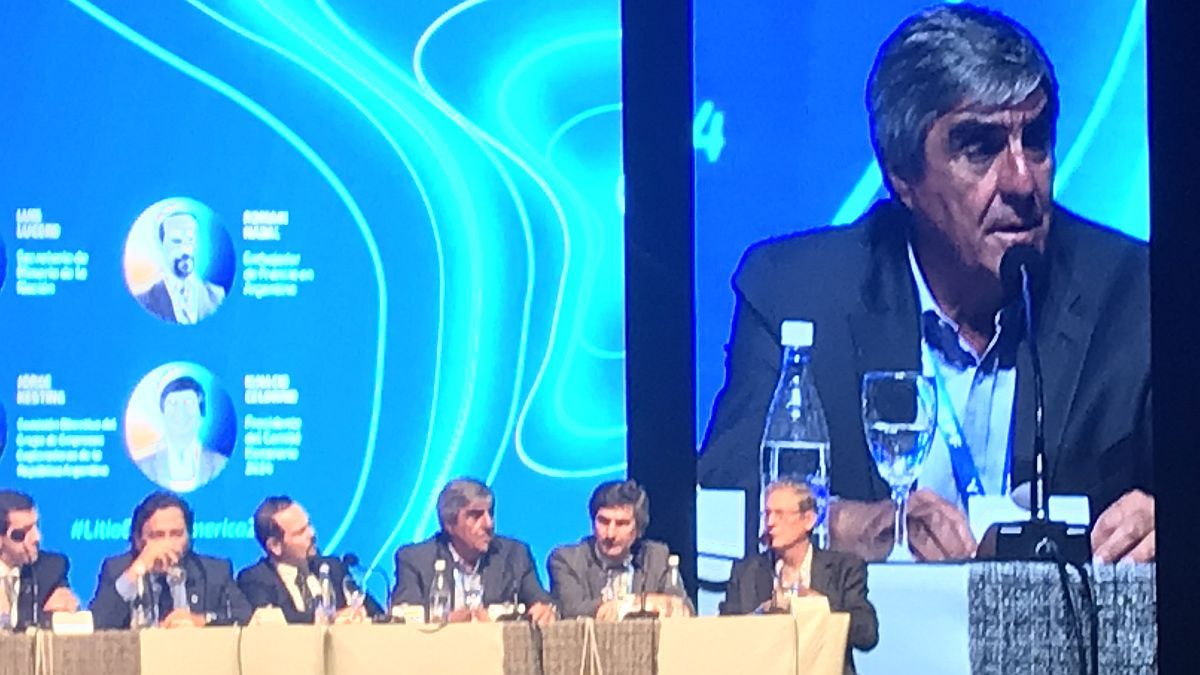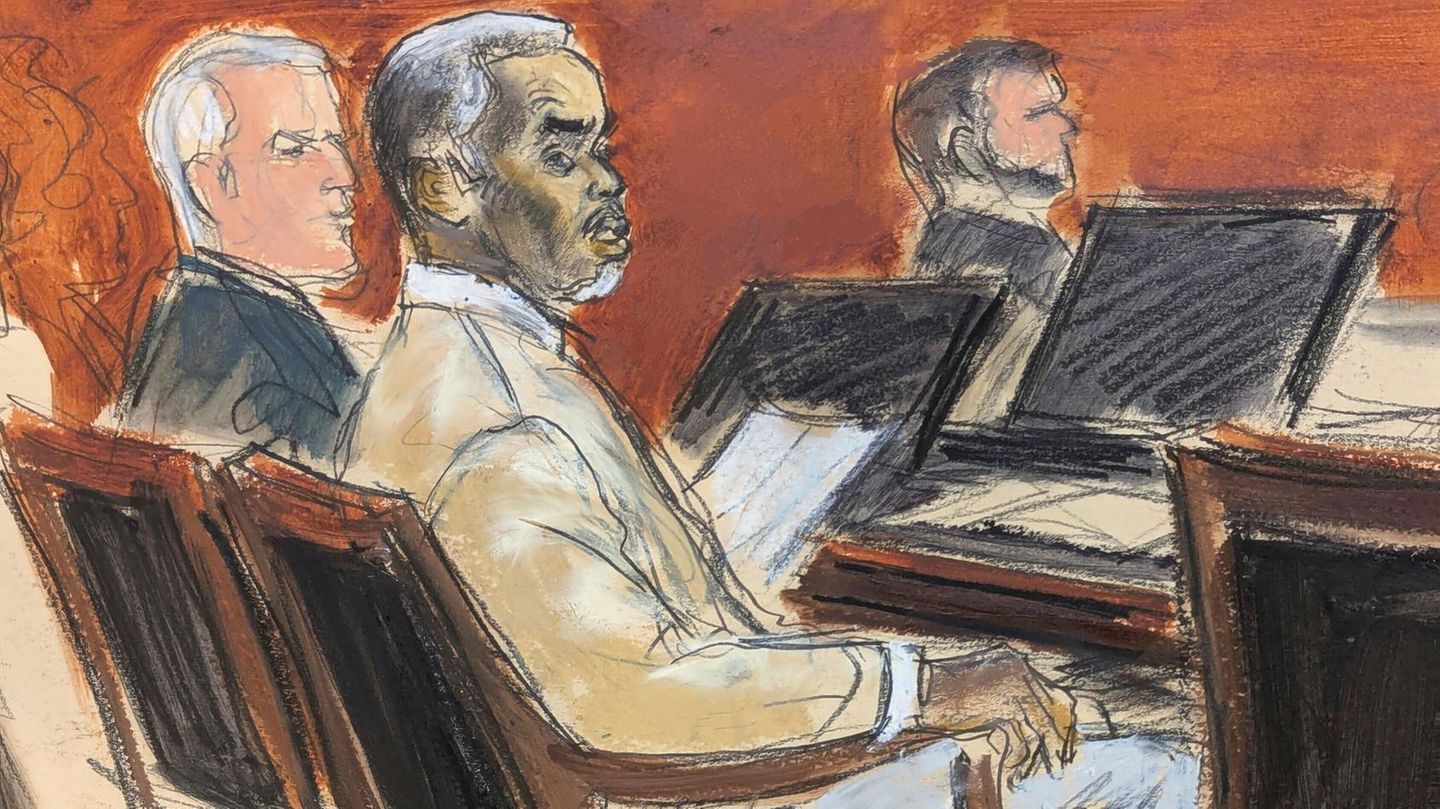The president of the Argentine Chamber of Mining Companies (CAEM), Roberto Cacciolaanalyzed the impact of the sale of Arcadium Lithium to Rio Tinto and the current state of the price of lithium, which continues to slightly exceed US$10,000 per ton, far from US$80,000.
Journalist: Rio Tinto bought Arcadium Lithium, what impact does the operation have and what is the interpretation that makes this purchase so important?
Roberto Cacciola: This purchase marks a clear interest in Argentina. This is not an opinion, it is a fact. That Río Tinto, which was already present in the country, is now betting on two of the main lithium projects in Argentina is very significant. Rio Tinto has always occupied a prominent place among the world’s leading mining companies, either in second place or near the top.
Journalist: In addition to the purchase of Arcacium, in San Juan the largest mining company in the world BHP acquired copper projects. Do you consider that these decisions prioritize Argentine mining?
RC: Definitely, because it shows the interest there is. Now, we must continue with the internal program to resolve some issues. Everyone has expectations about what will happen next year in electoral terms. And, on the other hand, for the projects that adhere to the Investment Regime for Large Infrastructures (RIGI), the exchange rate, which although temporary, does not affect them at this stage of full investment, since, in economic terms, It doesn’t matter so much if it exists or not (the stocks). In any case, companies will be attentive to how the definition of a new government, which came with a different idea, progresses. We are in a process in which we seek to ensure that this growth is effective and rational, and that the crises that inevitably accompany growth are managed in the best possible way.
Journalist: Why did you define these acquisitions as a contradiction? Is it because of the low price of lithium?
RC: No, on the contrary. The point is that there are other activities that have a good price, but do not generate expectations. We are growing in the lithium sector with projects under construction and others underway. Copper will surely take off soon. However, gold and silver mining, despite having record prices, is in decline. So, while we are generating a lot of interest in some mining sectors, we are not creating expectations in other minerals, and this could improve with more exploration in Argentina.
Journalist: You have been warning for some time about the decline in gold and silver production, and that in 5 years it could happen that there will be no more active mines. How much investment is needed today in Argentina for more gold and silver exploration?
RC: The need is to have significant exploration figures. There are two types of investments. First, those linked to existing projects, which need to double their exploration efforts to extend their useful life. The more they explore, the more likely they are to find new resources. Secondly, we need specialized exploration companies, which discover new projects and have lower costs due to their smaller structure, to start moving. Today, there is an enormous difference between the projects that are already there and those that enter the RIGI in terms of fiscal situation, access to foreign currency. Although we are not asking for a RIGI for them, it would be key to establish clear incentives to stimulate investment in exploration. An example would be to fully apply and respect the Mining Investment Law, which began to be neglected in 2007.
Journalist: How concerned are you about the very low price of lithium?
RC: It’s not that we don’t care, but with more than 40 years in the industry, I can tell you that price cycles are often difficult. The price of lithium rose unexpectedly and extraordinary, but is now in an adjustment phase. The drop in price was driven by China’s decision to reduce its stocks, the slowdown in electrification in the automotive industry and the high expectations generated by the high price. Now stocks will have to be readjusted, which will cause some expensive projects to temporarily leave the market, reducing supply. Although I cannot say when the market will adjust, I am sure that this situation is not final.
Journalist: I have heard comments that some Argentine suppliers are not sufficiently trained and that it will be necessary to incorporate suppliers from abroad. What do you think?
RC: To answer, it is important to define the current context of mining in Argentina. Mining is being accepted by the majority of society, although the percentages vary. Now, within that group there are people who do not live in mining provinces, but who have industries. I believe that we must work intelligently to include national suppliers that have the capacity to join this growth process, which in lithium is a reality and in copper there will also be definitions soon. The key is to prioritize and not grant privileges. Some foreign suppliers may have to enter, but the priority must be for the communities, provinces and the country. If we manage this well, growth crises will be easier to manage. A serious mistake would be to leave those who have a real interest in participating out of the process.
Journalist: And that is possible?
RC: In lithium, the reality is already evident. In copper, although the projects already have people working, when the construction of some begins, the mobilization will be very intense.
Source: Ambito




